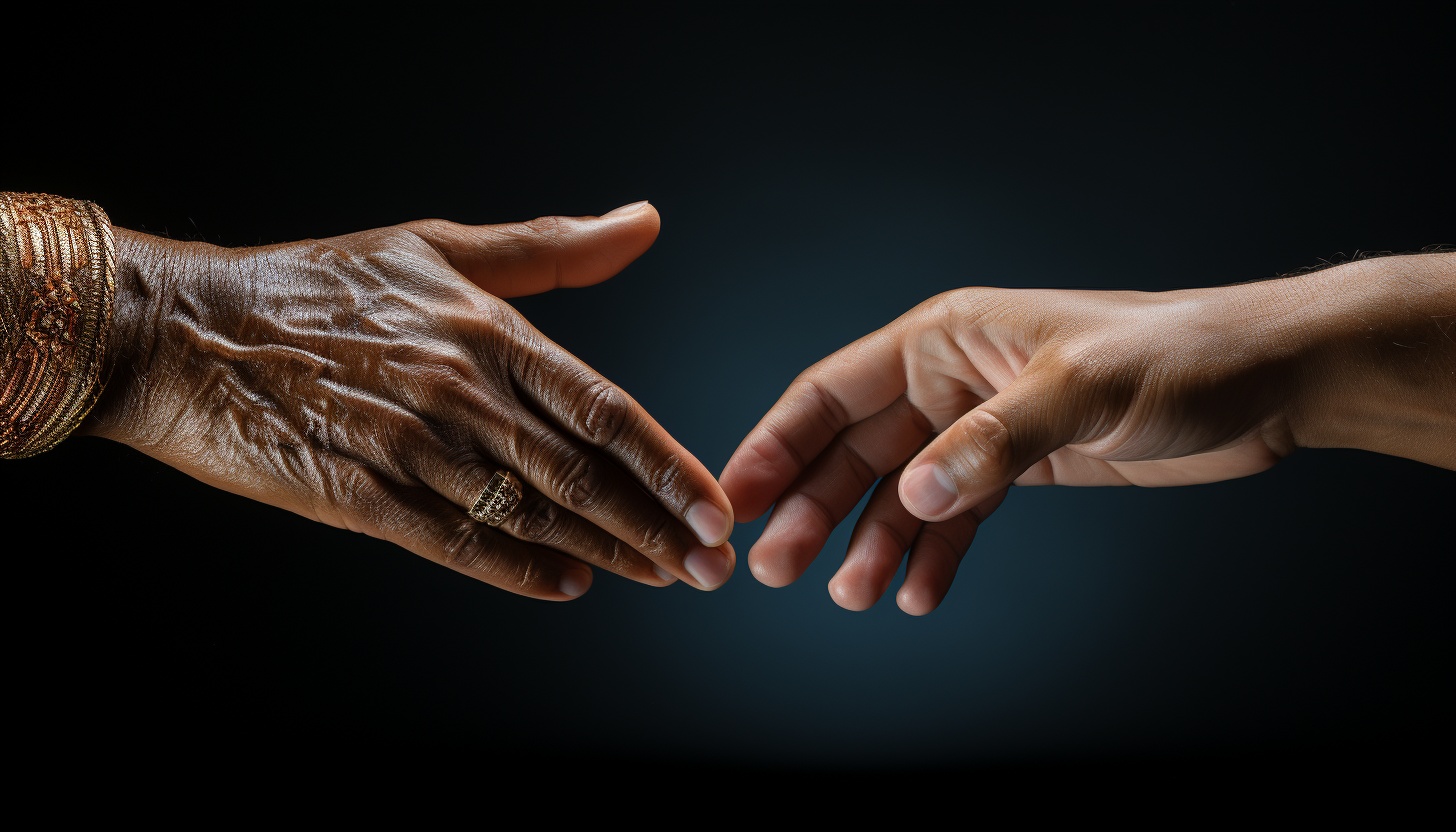
Rebuilding Trust: Strategies for Opening Up to New Relationships After Divorce
Did you know that over 40% of marriages end in divorce? If you find yourself starting over, rebuilding trust in new relationships can feel overwhelming.
But fear not, because there are strategies that can help you navigate this journey. In this article, we’ll explore practical ways to open up and build trust after divorce.
From reflecting on past experiences to seeking support, you’ll discover how to heal, set boundaries, and gradually rebuild trust in yourself and others.
Reflecting on Past Experiences

Before moving forward, take time to reflect on your past experiences with an open mind and a willingness to learn. Divorce can be a challenging and painful experience, but it also offers an opportunity for growth and self-reflection. By examining your past relationships, you can gain valuable insights into what worked and what didn’t, helping you make better choices in the future.
Start by acknowledging your emotions and giving yourself permission to feel them. It’s natural to feel a range of emotions after a divorce, including anger, sadness, and betrayal. Allow yourself to process these emotions without judgment, and use them as a guide for understanding what went wrong in your previous relationship.
Next, take an honest look at your own role in the breakup. It’s easy to blame your ex-spouse for everything that went wrong, but it takes two people to make a relationship work or fail. Ask yourself what you could have done differently and what patterns or behaviors you need to change moving forward.
Healing and Self-Care

As you continue your journey of rebuilding trust and opening up to new relationships after divorce, it’s crucial to prioritize healing and self-care.
Divorce can be emotionally and mentally draining, leaving behind wounds that need time and attention to heal. Taking care of yourself during this process is essential for your overall well-being and future relationship success.
Start by allowing yourself time to grieve and process the end of your marriage. It’s normal to experience a range of emotions, such as sadness, anger, or confusion. Give yourself permission to feel and acknowledge these emotions without judgment. Seek support from trusted friends, family, or even a therapist who can provide a safe space for you to express your feelings and gain valuable insights.
Engaging in self-care activities can also aid in the healing process. Find ways to nurture yourself physically, mentally, and emotionally. This might involve engaging in regular exercise, practicing mindfulness or meditation, pursuing hobbies or interests that bring you joy, or simply taking time to relax and recharge. Remember, self-care isn’t selfish but rather a necessary investment in your well-being.
Additionally, it’s important to set boundaries and prioritize your needs. Take the time to evaluate your values, desires, and goals for future relationships. Be clear about what you need and deserve in a partner, and don’t settle for anything less. Trust your instincts and listen to your intuition when entering into new relationships. Remember, healing takes time, and it’s okay to take things slow and prioritize your own well-being above all else.
Setting Boundaries and Priorities

To ensure your emotional well-being and establish healthy relationships after divorce, it’s vital to set clear boundaries and prioritize your needs. Going through a divorce can leave you feeling emotionally vulnerable and uncertain about what lies ahead. By setting boundaries, you create a safe space for yourself and others to navigate new relationships. Boundaries define what’s acceptable and what’s not, helping you protect your emotional health. Communicate your limits openly and honestly, and remember that it’s okay to say no when something doesn’t align with your values or needs.
Prioritizing your needs is equally important. Divorce can leave you feeling lost and unsure of your identity. Take this time to reconnect with yourself, understand your values, and determine what you need from a relationship. By putting yourself first, you create a solid foundation for future connections. It’s important to remember that you deserve happiness and fulfillment. Prioritize activities and relationships that contribute positively to your well-being and let go of those that drain your energy or bring negativity into your life.
Setting boundaries and prioritizing your needs may feel uncomfortable at first, but it’s crucial for your emotional growth and the establishment of healthy relationships. Be patient with yourself as you navigate this new chapter in your life. Trust your instincts and remember that you’re worthy of love and respect.
Building Trust Slowly and Gradually

To build trust slowly and gradually in new relationships after divorce, it’s important for you to be open and honest with your partner about your emotions and boundaries. Rebuilding trust takes time and effort, but with patience and understanding, you can create a strong foundation for a healthy relationship.
Here are some practical strategies to help you build trust step by step:
– Communicate openly: Share your feelings and concerns with your partner. Be transparent about your past experiences and any fears or insecurities that may arise. This open communication will foster understanding and empathy.
– Set realistic expectations: Recognize that trust takes time to develop. Don’t rush the process or expect instant results. Be patient with yourself and your partner as you navigate through the challenges together.
– Take small steps: Start by sharing small details about your life and gradually build up to more personal topics. This gradual approach will create a sense of safety and allow trust to grow naturally.
Seeking Support and Professional Help

If building trust slowly and gradually in new relationships after divorce feels overwhelming, seeking support and professional help can provide valuable guidance and assistance.
Going through a divorce is a challenging and emotionally draining experience, and it’s completely understandable to feel hesitant and cautious about starting new relationships. However, it’s important to remember that seeking support and professional help isn’t a sign of weakness, but rather a proactive step towards healing and rebuilding trust.
A therapist or counselor can play a crucial role in helping you navigate the complexities of trust in new relationships. They can provide a safe space for you to express your fears, insecurities, and doubts, and offer practical strategies to rebuild trust. Through individual or group therapy sessions, you can gain valuable insights and learn effective communication techniques that can help you establish healthy boundaries and express your needs and expectations.
Additionally, support groups can be a valuable resource for connecting with others who’ve gone through similar experiences. Sharing your journey with others who understand can provide a sense of validation, support, and encouragement. These groups often offer a platform for discussing common challenges, sharing coping strategies, and learning from each other’s experiences.
Conclusion
In the journey of rebuilding trust after divorce, remember that healing takes time. Reflect on past experiences to learn and grow, while prioritizing self-care and setting healthy boundaries.
Building trust with new relationships requires patience and gradual steps. Seek support from loved ones and consider professional help when needed.
Remember, trust can be rebuilt, and with empathy, insight, and practical strategies, you can open up to new relationships and experience love and connection once again.






